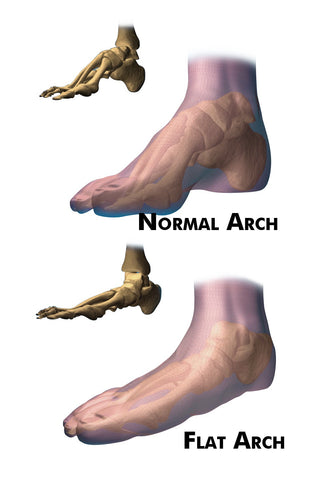Flatfoot, also known as pes planus, can have both hereditary and non-hereditary causes. Here's an explanation of both:
Flattfoot Hereditary Causes:
Flatfoot can run in families, which suggests a hereditary component. If a child's parents or close relatives have flat feet, there may be a genetic predisposition that increases the likelihood of the child developing flatfoot. However, it's not a straightforward genetic trait like eye color. Rather, it can involve a combination of genetic factors that affect foot structure.
Podiatrists recommend, especially in case your family members perceived discomfort, to try and prevent this issue in your children. The least you can do is look for shoes which provide some basic arch support, or are certified orthopedic. Our eshop can easily help you as our toddler orthopedic shoes are priced very competitively. Thus, you do not need to spend any more than you would with other brands. Toddler boys orthopedic sandals and Toddler girls orthopedic sandals. If you would rather start with a low arch support sandals, we have a wide variety of this type as well.
Non-Hereditary Causes:
It can also develop due to various non-hereditary factors, including:
- Muscle Weakness: Weakness in the muscles and tendons that support the arch of the foot can contribute to flatfoot. This weakness can be caused by various factors, such as inadequate exercise or certain medical conditions.
- Injury or Trauma: Trauma or injury to the foot or ankle can lead to changes in foot structure, including flatfoot.
- Age: In some cases, flatfoot can develop or become more pronounced as individuals age, as the supporting structures in the foot may weaken over time.
- Obesity: Excess body weight can put additional strain on the arches of the feet, potentially leading to flatfoot.
- Pregnancy: Some women may develop flatfoot during pregnancy due to hormonal changes and the extra weight they carry.
- Medical Conditions: Certain medical conditions, such as rheumatoid arthritis or connective tissue disorders, can contribute to flatfoot.
It's important to note that not all cases of flatfoot are symptomatic or problematic. Many people have flat feet without experiencing pain or functional issues. However, if flatfoot is causing discomfort, pain, or other problems, it's advisable to consult with a healthcare provider or a podiatrist. They can determine the underlying cause and recommend appropriate treatments or interventions, which may include orthotic devices, exercises, or, in severe cases, surgery.
For more information on this topic: https://my.clevelandclinic.org/health/diseases/17005-flat-feet

